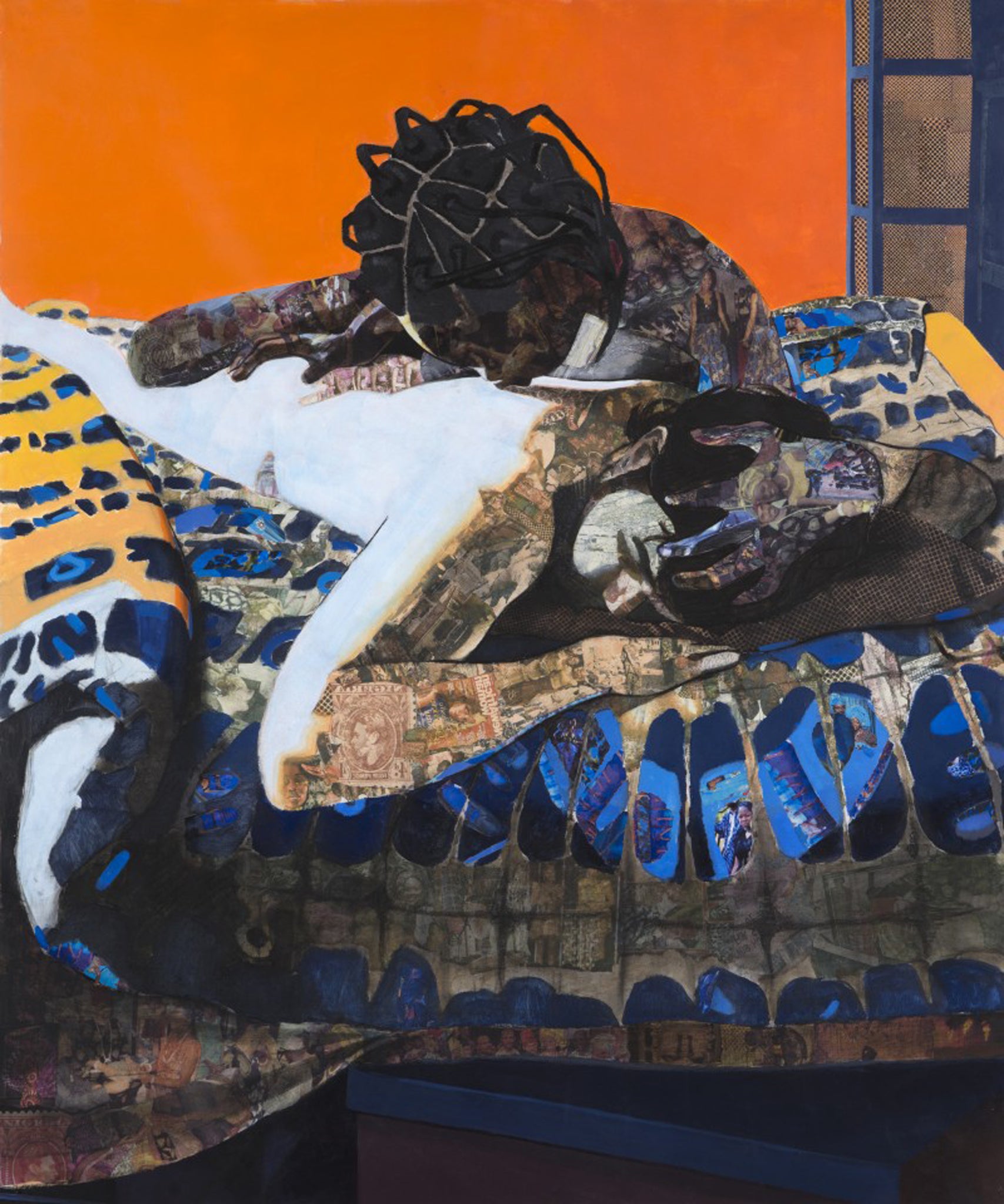Things fall into two parts: Artist Njideka Akunyili tells a new Nigerian story
The artist explains how she blends different techniques to describe a 'no man's land' between a Nigerian past and American present

Your support helps us to tell the story
From reproductive rights to climate change to Big Tech, The Independent is on the ground when the story is developing. Whether it's investigating the financials of Elon Musk's pro-Trump PAC or producing our latest documentary, 'The A Word', which shines a light on the American women fighting for reproductive rights, we know how important it is to parse out the facts from the messaging.
At such a critical moment in US history, we need reporters on the ground. Your donation allows us to keep sending journalists to speak to both sides of the story.
The Independent is trusted by Americans across the entire political spectrum. And unlike many other quality news outlets, we choose not to lock Americans out of our reporting and analysis with paywalls. We believe quality journalism should be available to everyone, paid for by those who can afford it.
Your support makes all the difference.When Njideka Akunyili left Lagos for the US aged 16, she wanted to be a doctor. But after studying a degree in biology and fine art, she decided to pursue a career as an artist. Her family were keen for her to follow a more stable career, but she felt an urge to tell another side of Nigeria’s story.
Click here or on view gallery to see more of Akunyili's paintings
“America has a lot of people talking about how Nigeria doesn’t,” she says. “Often people have a singular view about Nigeria and Africa. But problems of misrepresentation happen when people tell your story for you.”
Her story of Nigeria seen through the eyes of the US is a very personal one. She often puts her American husband (above) at the centre of her work, either painting them in bed together or depicting scenes from their traditional Nigerian wedding ceremony.
She also draws on images of Nigerian popular culture, which she combines with family photographs to create her own personal portrait of her home country.
“It really comes down to me showing my Nigeria. They’re the things I recognise. I need to feel a resonance with the picture for me to choose it in my work. If people can see a new side to Nigeria, I’m helping to add to the stories that already exist.”
Her use of pop culture references mixed with flattened sections of paint and one point perspective borrow from different artistic traditions.
Her intention, she says, is to convey her two identities merging together in a new, often problematic, space. Having lived in America for 14 years, she describes feeling in a “no man’s land” between two cultures.
“My work is not about being a Nigerian living in America. It’s more like a very interesting liminal space. A space that you can’t quite figure out."

“When you look at the work, things are jarring. I want to feel like something is off, like something is lost. It’s a little bit like wanting to put people in this weird no man’s land. I try and do that a little bit with the construction,” she says.
Her emphasis on bringing together different formal elements is strongly influenced by Chinua Achebe and other Afro-Caribbean writers.
“Achebe once said if you alter the English language you can make it bear the burden of another language. I feel like I’m taking this Western visual language I inherited, just as African writers inherited English, and I’m trying to make a new version of it so it speaks to another place.”
One example is her use of transfers, a typically Western printing process that involves transferring ink from photographs using solvent. Akunyili builds up the transfer images of popular culture to reference traditional African textiles.
But her work doesn’t just tell the story of a conflict between her Nigerian and American lives. She is also interested in the mixture of cultures emerging within her home country.
“Another space I try to negotiate is modern Nigeria. There are vestiges of the British presence, but since 2000 the country has been opening up, so you get the American pop influence too.”
Akunyili left Nigeria for the US in 1999, and although she has not been back to exhibit there yet, she says she is still excited to be part of a palpable change in the country’s contemporary art scene.
“There are more Nigerians doing art on an international scale, and more people doing it successfully. The younger generation are realising the list of what you have to do as a career is not so limited. It’s more about people seeing art as a viable thing and not as a hobby,” she says.
Akunyili is fast making a name for herself on the international art scene. At last year’s Art Basel fair her paintings sold out in half an hour and she is currently exhibiting in London's Tiwani Contemporary, her second show in the capital this year.
Her new exhibition moves away from depicting intimate scenes with her husband, and instead focuses on portraits of her Nigerian family in domestic settings.
But she has not stopped painting her Nigerian life through an American lens. “My husband may not be there, but he’s present in so many other ways.”
Njideka Akunyili is exhibiting with Simone Leigh at the Tiwani Contemporary, London, until 14 December. www.tiwani.co.uk

Join our commenting forum
Join thought-provoking conversations, follow other Independent readers and see their replies
Comments